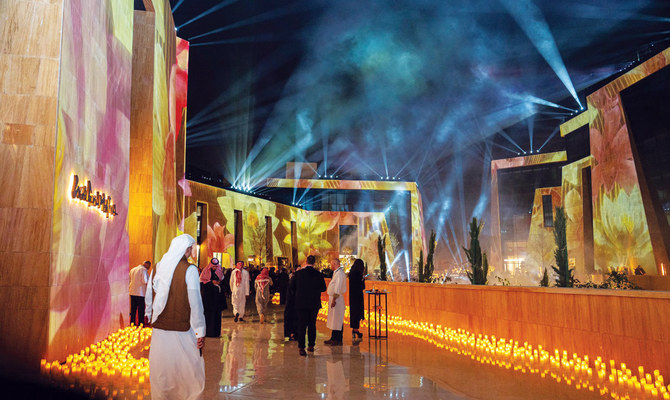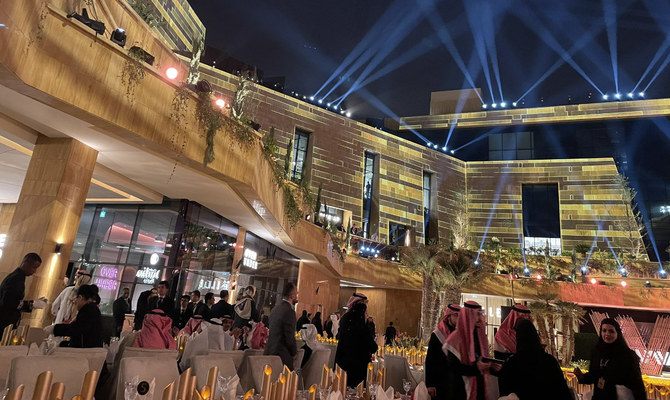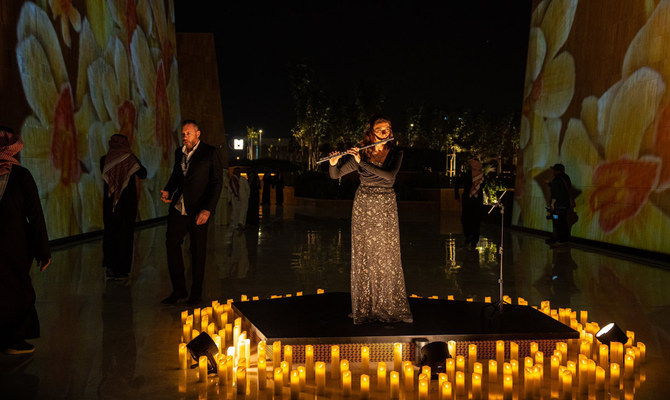RIYADH: VIA Riyadh is the Saudi capital’s latest luxury destination that includes select restaurants, a cinema, the Kingdom’s first St. Regis Hotel, and elite shopping outlets.
Fireworks lit up the sky as Turki Al-Sheikh, chairman of the General Entertainment Authority, inaugurated VIA Riyadh, which will officially open its doors to the public in mid-February.
VIA Riyadh will offer live performances, as well as exceptional hospitality, accommodation and services to visitors seeking premium experiences.
Construction of the area, which is built in the Salmani style, took 20 months. The Salmani design process is based on six core values outlined by King Salman: authenticity, continuity, human-centricity, livability, innovation and sustainability. Salmani architecture integrates modern lifestyles while evoking the local identity and architectural heritage of the Kingdom.
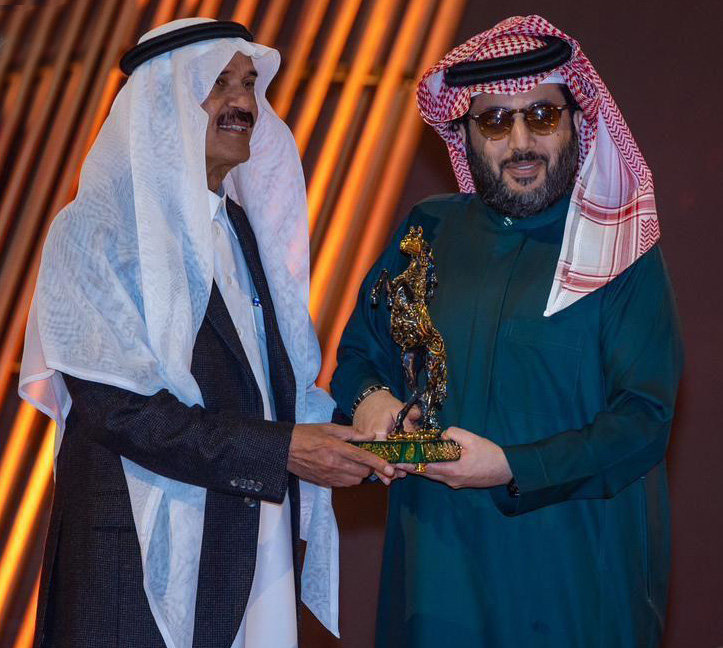
Khaled Al-Malik, chairman of the Saudi Journalists Association, honored for his exceptional media career. (SPA)
Located near the Ritz-Carlton, VIA Riyadh holds a significant place in Saudi history as it was the birthplace of the Second Saudi State in the 1820s. Stones from the Tuwaiq mountains were carefully chosen and extracted to create and build the area.
To encourage calm and serenity at VIA Riyadh, water fountains have been installed in the interiors and waterfalls intertwined with the rest of the outdoor landscape. The gentle and soothing sounds of water create an experience that enhances the picturesque natural landscape of the area.
The inauguration ceremony witnessed the presence of a number of ministers, officials and ambassadors accredited to the Kingdom.
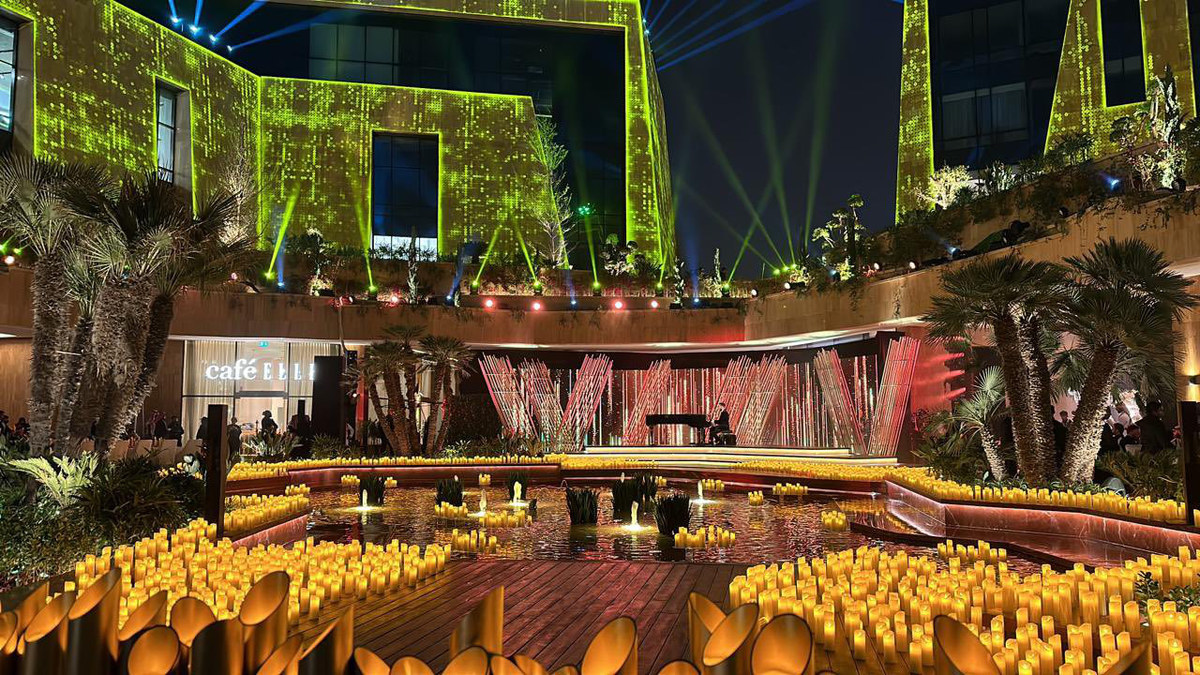
VIA Riyadh will offer live performances, as well as exceptional hospitality, accommodation and services to visitors seeking premium experiences. (Twitter: @AhmedAlKhateeb)
Ahmed Al-Khateeb, the Saudi minister of tourism, shared on his official Twitter account: “At the invitation of my brother, His Excellency Counselor Turki Al-Sheikh @Turki_alalshikh, I was pleased to attend the opening of the @ViaRiyadh project, which includes the St. Regis Hotel for the first time in the Kingdom and a number of luxurious restaurants, which contributes to creating a unique experience for visitors and residents of the city of Riyadh, which will remain the most exciting and attractive tourist destination.”
Japanese Ambassador to Saudi Arabia Iwai Fumio said on his official Twitter account: “At the kind invitation of His Excellency the President of the General Entertainment Authority @Turki_alalshikh attended the inauguration ceremony of @ViaRiyadh last night. This site truly embodies a distinct mark in Riyadh where you enjoy a new and unique experience.”
The private ceremony also witnessed the honoring of Khaled Al-Malik, chairman of the Saudi Journalists Association, for his exceptional media career.


